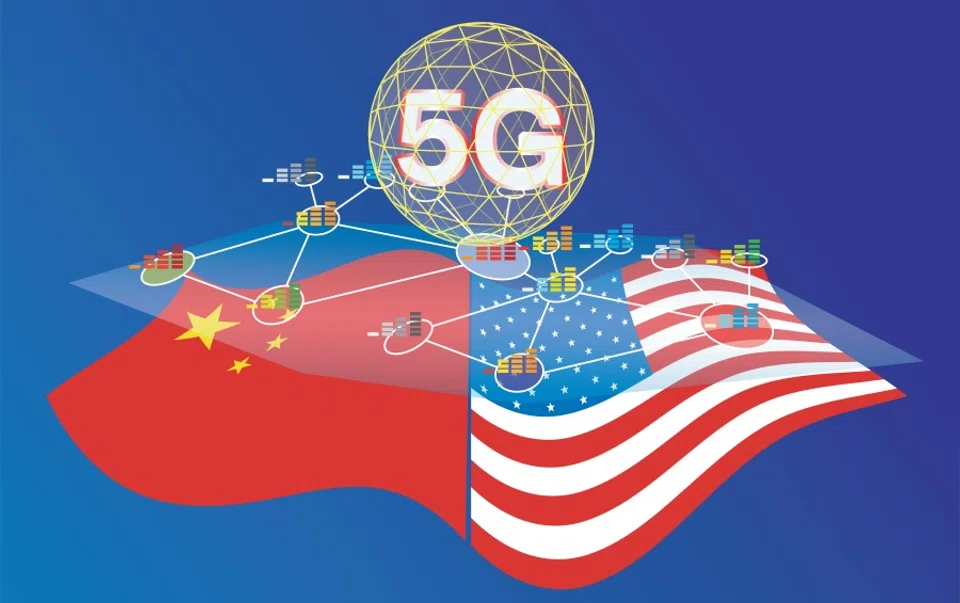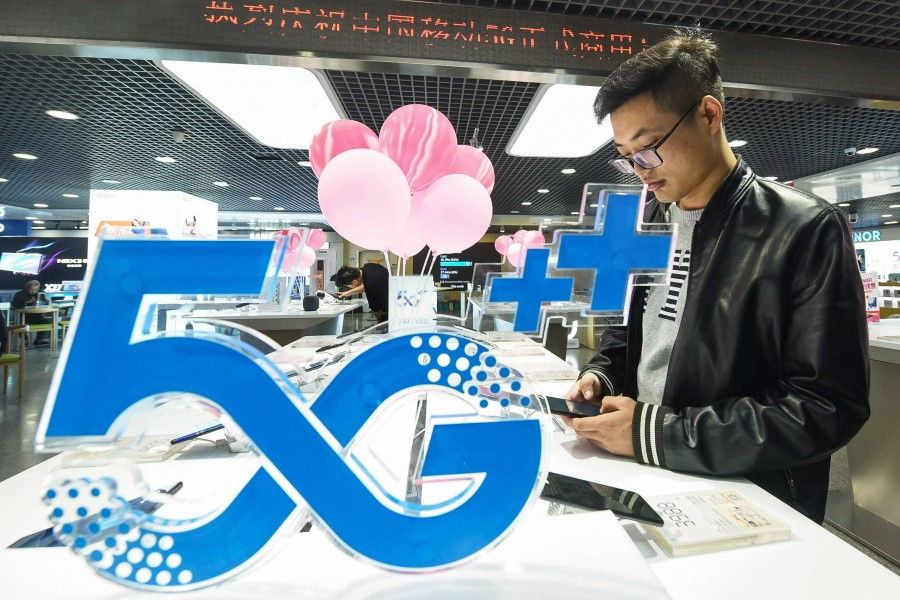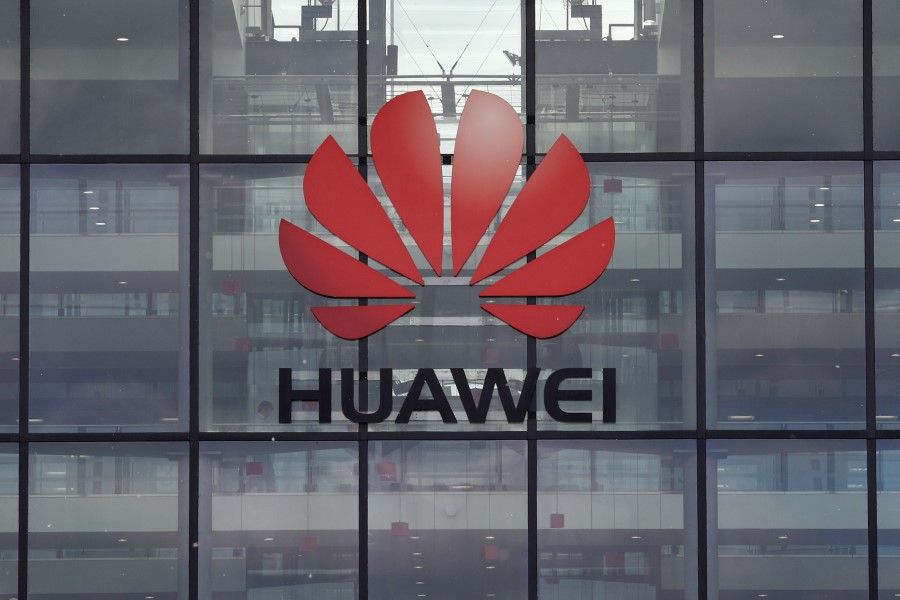Who is winning the 5G technology race?

The spotlight of the global 5G race is cast squarely on China and the US. Influential figures and organisations in China claim that the country is leading the world in 5G technology. While the US admits that Huawei has built more 5G base stations than American companies, it disputes the claim that China is ahead in 5G technology.
In February 2019, Huawei indicated on its official website that "Huawei is the leading provider of 5G solutions". On 26 October 2019, Ni Guangnan, an academician of the Chinese Academy of Engineering, said, "When it comes to 5G, China is making faster progress than the rest of the world. Every Chinese city is embarking on 5G deployment. Do you see the same being done elsewhere in the world?" On 14 December 2019, ZTE senior vice president, Liu Jian, commented that China is at the forefront of 5G technology, and that Huawei and ZTE are 10 to 11 months ahead of Ericsson and Nokia in terms of 5G technology.
Neck and neck
There are two aspects to the statement that China is a world leader in 5G technology: firstly, that Huawei is the global number one in terms of 5G network deployment, and secondly, that both Huawei and ZTE lead the world in 5G technology.
Western countries do agree that China is the world leader in 5G network deployment. On 4 January 2020, an article in Die Welt warned that excluding Huawei would result in frequent network outages in Germany, higher fees for German consumers, and up to several years of delay in network deployment for Germany. On the other hand, the claim that Huawei's 5G technology is world-leading has not been backed by any influential figure in the West.

Instead in February 2019, Cisco Systems published its Cisco Visual Networking Index report. The report forecast that in the year 2022, the US would still be the leader in the 5G realm. On 20 March 2019, the CEO of AT&T, Randall Stephenson, commented that China has not defeated the US in the 5G race. In an April 2019 report published by Analysys Mason, a global telecommunications research firm, China and the US were ranked joint first globally in terms of 5G readiness.
... telecommunication operators buy Huawei products because they are cheaper, but "have no idea which company is more technologically advanced".
In September last year, James Lewis, a senior vice president of the United States Center for Strategic and International Studies, said during a media interview, "China is doing pretty well currently, but their claims of dominating the 5G market is political propaganda. What is certain now is that Chinese companies are fully reliant on American suppliers for their 5G businesses. As for technological leadership, the US and Japan are still the heavyweights. While no country can claim to dominate the 5G market, none can produce 5G equipment without American components."
On 1 December 2019, Steven Mollenkopf, CEO of Qualcomm rejected the claim that China is ahead of the US in the 5G race, but agreed that both countries are on par in terms of building 5G base stations. On 4 December 2019, the Frankfurter Allgemeine Zeitung quoted an expert who felt that claims of Huawei leading the 5G race are merely propaganda by the company and the Chinese government. According to Matthew Noble, an expert with Bird & Bird, telecommunication operators buy Huawei products because they are cheaper, but "have no idea which company is more technologically advanced". The cost of building a telecommunication network using Huawei products is 20 to 30% lower than using products from other suppliers. He also opined that in terms of actual contribution to the progress of 5G technology, Ericsson, Samsung and Qualcomm are in the top three, followed by Nokia. While Huawei may have applied for a number of 5G patents, it is the quality and not the quantity of the patents that matters.
The reality of interdependence
Pundits in Western countries do not agree that Huawei has world-leading 5G technology because the company relies on the US for the crucial chips used in the 5G equipment it produces. This is analogous to Huawei erecting a skyscraper with a foundation manufactured by the US, or a cutting-edge, Chinese-made fighter jet outfitted with a Russian engine. That is also why Chinese public opinion was unstinting in rebuking the US's clampdown on Huawei and ZTE. It is also the reason Chinese leaders are now emphasising the need for the country to develop "proprietary core and crucial technologies so that it can become stronger".

Additionally, the scope of 5G technology is very broad. 5G technology aims to fulfil three objectives: enhanced Mobile Broadband (eMBB), Ultra Reliable Low Latency Communications (URLLC), and massive Machine Type Communications (mMTC). This involves more than 10 different types of technologies that are under development, including massive Multiple-Input Multiple-Output (MIMO), New Radio (5G NR), beamforming, millimetre wave, and network slicing etc.
Complicating matters further, not all telecommunication operators intend to deploy all the different technologies. For instance, an operator may prefer to install small, millimetre-wave units in order to achieve high-density, everywhere coverage. At the same time, another operator may be more concerned with beamforming technology instead. The diverse offerings of 5G technology means that it is difficult to envisage one company becoming the world leader in all the technologies it has an interest in. In fact, it may not even be possible for a company to grasp all the 5G technologies.
...it is impossible for a country to have the upper hand in all the technologies involved. Instead, different technologies would be dominated by different companies or countries.
Adam Segal, a technical expert at the United States Council on Foreign Relations, feels that even though China is switching on its 5G networks first, the race is not over. American companies can still dominate the applications and services that run over 5G, just like what they have been doing in the 4G era. The first few killer applications for 5G may well come from the areas of autonomous vehicles, augmented reality, and virtual reality that American companies are working on. In this regard, 5G technology goes beyond network equipment to include applications.
For example, the autonomous-vehicle sector alone encompasses three core domains: sensors, semiconductors, and software. Autonomous vehicles generally run on alternative fuels. This means that both autonomous vehicles and their alternative-fuel batteries are the products of global supply chains that have manufacturing, research, development functions. Therefore, it is impossible for a country to have the upper hand in all the technologies involved. Instead, different technologies would be dominated by different companies or countries. The outcome is that countries around the world would need to split up the work and cooperate in order to gain the high ground in technology and production. Presently, it is still premature to say which country is leading in the application of 5G technology.

China's response to technological globalisation
In the face of technological globalisation, what can China do? On numerous occasions, the Chinese public have heard their state leaders' calls for greater self-reliance. But, at the New Economy Forum held in November 2019, President Xi Jinping said, "No country can go it alone to become a centre of innovation, or not share its fruits of innovation. Instead of being buried in caves like treasure, these innovations should be used to benefit the world." While becoming self-reliant shows the backbone of the Chinese people, participating in technological globalisation points to their pragmatism.
... the nature of the 5G race has been altered because it has become the focal point of the political tussle between China and the US.
Looking ahead into the 5G era, while the spotlight of the 5G race is cast strongly on China and the US, Europe and Japan have their strengths too, and it remains to be seen who will come up on top. Nonetheless, the most likely outcome is that no one country would possess all the crucial 5G technologies. This would compel countries to compete against and complement each other so as to create win-win outcomes. On 19 December 2019, Ambassador Zhang Ming, head of the Chinese Mission to the EU, said, "5G technology is the collaborative outcome of the international community." As such, there is really no need to highlight certain countries or companies. Nonetheless, it is worthwhile pointing out that the 5G race between China and the US is beneficial for technological progress.
However, the nature of the 5G race has been altered because it has become the focal point of the political tussle between China and the US, and the US government is using its national resources to clamp down on Huawei. In the US, President Donald Trump has invoked the International Emergency Economic Powers Act (IEEPA) to do so. Internationally, US Secretary of State, Mike Pompeo, is persuading and coercing Western countries not to use 5G equipment produced by Huawei. On 28 December 2019, the President of the European Commission, Ursula von der Leyen spoke to Der Spiegel on the European Union's plans to establish common standards for 5G. One of the requisites is that manufacturers supplying sensitive technologies must be "independent and cannot be coerced by their governments to provide data". This shows that Europe may harden its stance towards Huawei*.
Henceforth, Huawei must rely on the backing of the Chinese state in the 5G race because it has become an examination of a country's overall technical prowess and manufacturing standards. Decoupling from American technology would not cause an existential crisis for Huawei because it is well-supported by the purchasing power of the massive Chinese market. Whether Huawei can eventually come out on top of American companies in the 5G race is a contest between Chinese and American institutional power, innovative capacity, and economic might. If Huawei's 5G technology is decoupled from that of the US, then it becomes increasingly likely that China and the US would form independent 5G technical systems.
Note:
*In the UK, Prime Minister Boris Johnson defeated his first party rebellion over a government decision to allow China's Huawei to have a role in building Britain's 5G phone network. Britain decided in January to allow Huawei into non-sensitive parts of the country's 5G network, capping its involvement at 35%. Tory MPs put forward an amendment to the Telecommunications Infrastructure Bill. The amendment wanted firms classified as "high-risk vendors" by the National Cyber Security Centre to be banned entirely from the UK's 5G project by 31 December 2022. However, this was defeated in a vote across the House and the bill was passed on 10 March.
Meanwhile, at a Huawei online product launch on 9 March in China, Yang Tao, vice-president of Huawei's Consumer Business Group, announced that by end 2020, China will build at least 630 000 5G base stations across the country, and its 5G development will not be affected by Covid-19.
Related Reading: The myths and realities of 5G | A whole new world with the Internet of Things
